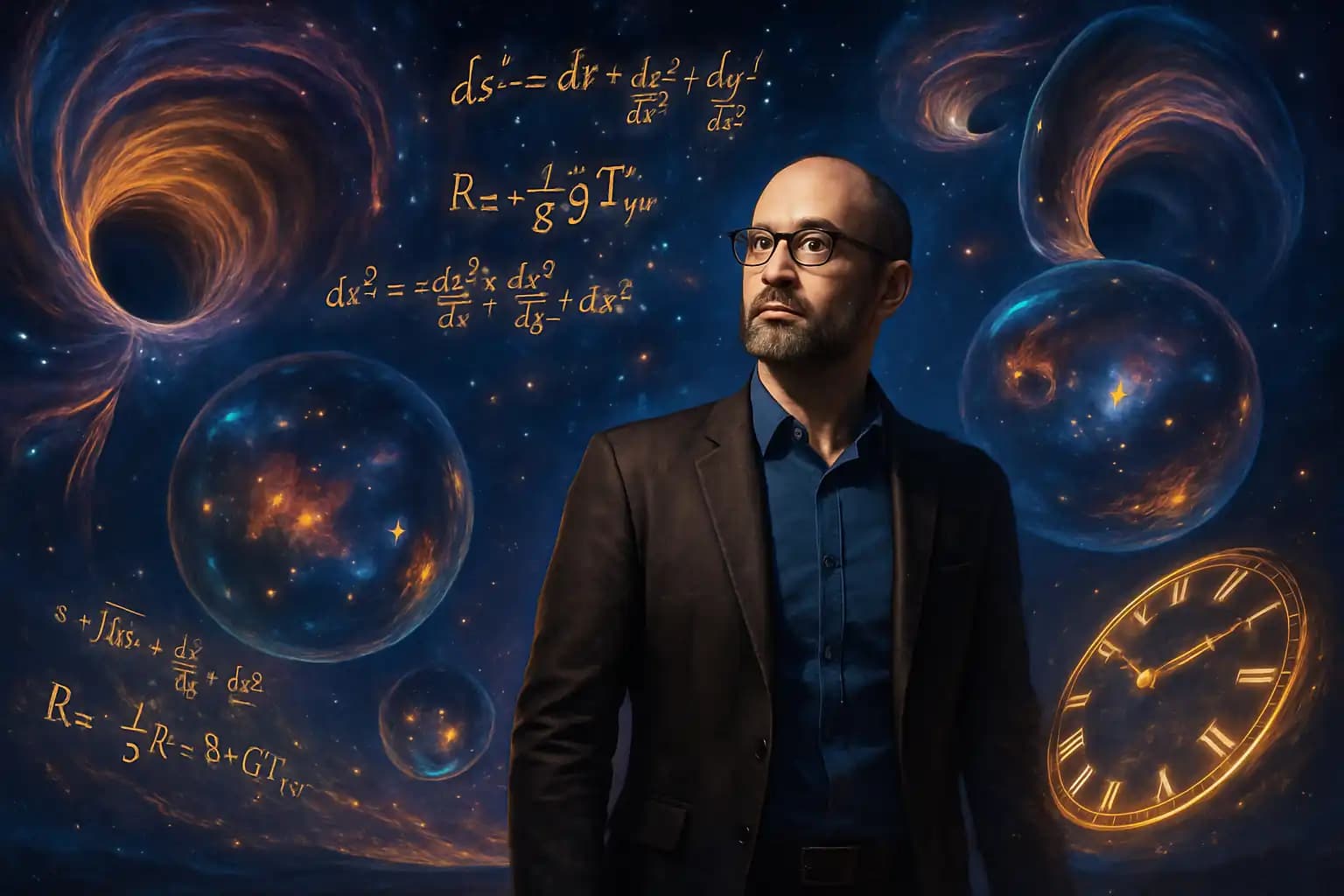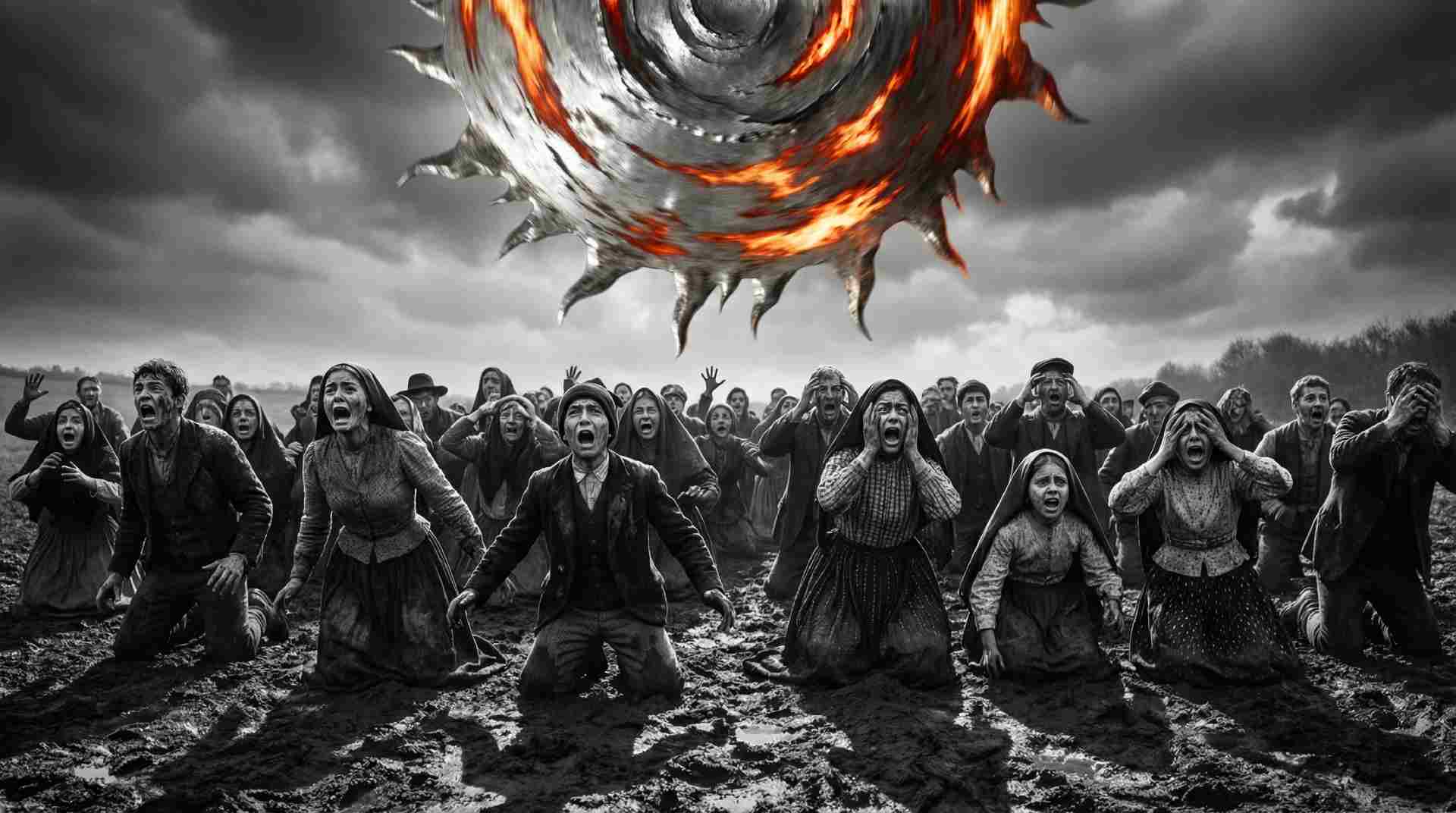If you’ve ever dreamed of zipping through the centuries, you’re not alone. Time travel and the multiverse captivate sci-fi fans, doomscrollers, and theoretical physicists alike. Few explain the tangled web of hype and reality better than Dr. Paul Sutter—NASA consultant, cosmologist, and self-described science communicator, whose career merges hard math with wild imagination.
In his latest podcast, Dr. Sutter lays down the truth: “Time travel, as you know it from fiction, is almost certainly impossible.” But don’t let that extinguish your curiosity. The physics we understand is stranger and more thrilling than most screenwriters dare to depict. Prepare for a philosophical dive into free will that rivals the weirdest alternate realities imaginable.
The Science and Fiction of Time Travel
The term “time travel” evokes images of humming DeLoreans and wormhole-spanning portals, yet Dr. Sutter skips the fantasy. According to mainstream physics, time is a dimension tightly woven with space. Einstein’s theories of relativity connect them. Moving forward in time actually occurs, albeit on minuscule scales. The faster you move or the stronger gravity’s pull, the slower your clock ticks compared to the universe. Astronauts age slightly slower than ground-bound mortals—a phenomenon you can explore via Wikipedia’s entry on time travel.
But traveling backward? That’s a different story. Some solutions, like rotating black holes or wormholes, may allow for travel to the past. Yet generating or surviving these cosmic wonders would require technology beyond NASA’s imagination. The current consensus, as Sutter notes, is that physics offers mathematical models for backward time travel, but reality may deny it.
Multiverse Theories: Bubble Universes and Cosmic Speculation
Mention the multiverse, and debates spark faster than the Large Hadron Collider on test day. Dr. Sutter clarifies the reality: while theoretical physics doesn’t rule out multiple universes, there’s currently no experimental evidence supporting their existence. In this feature at Discover Magazine, he explains that the multiverse logically follows some cosmological inflation models. There could be infinite bubbles, each with its own laws of physics—one universe featuring Bigfoot, another where gravity operates in reverse. For more mind-bending speculation, see his science columns in Popular Mechanics.
However, Sutter cautions: absence of evidence is not evidence of absence. The multiverse poses provocative questions (and a touch of fear, as explored in this eerie AI hallucinations exposé), but for now, it remains a useful framework rather than confirmed scientific fact.
Free Will: Physics, Philosophy, and Quantum Uncertainty
Does physics diminish your freedom to choose, or is free will still relevant? Sutter’s response: it’s complicated. Classical physics presents a deterministic universe—like falling dominoes, everything unfolds according to earlier events. Quantum physics introduces genuine randomness into the mix. Subatomic particles behave unpredictably, allowing for uncertainty—though, as Sutter emphasizes in interviews like his Ask a Spaceman podcast, this doesn’t liquidate autonomy or consciousness. Free will intersects biology, physics, and philosophy and may hinge more on perception than on particle movements.
The debate rages on, just as mysteries persist around significant discoveries—like the James Webb Telescope’s cosmic revelations and stunning mathematical codes embedded in human destiny (see this code-centric breakdown).
Diving Deeper: From NASA Concepts to Pop Culture Myths
Dr. Sutter’s involvement with NASA’s Innovative Advanced Concepts program marries plausible space exploration with speculative theories. He passionately debunks, eager to clarify the difference between science fiction’s thrilling promises and sobering truths. His writing—published in places like Ars Technica—explains why time machines likely remain a Hollywood fantasy but keeps the door open for future generations to rewrite that story. In this golden age of theoretical research, distinguishing wild speculation from testable physics has never mattered more. For more on this, his NASA profile offers insight into rigorous study and creative imagination.
The multiverse, time travel, and free will are not merely abstract debates; they influence how we conceive our role in a mysterious universe. The overlap with urban legends and wild theories—think NASA conspiracy narratives or infamous viral murder stories (see this confessional bombshell)—shows our fascination with the question “what if?”. For more head-spinning mysteries and serious scientific discussions, dive into the depths at Unexplained.co. In a multiverse of possibilities, the truth remains the strangest journey of all.





